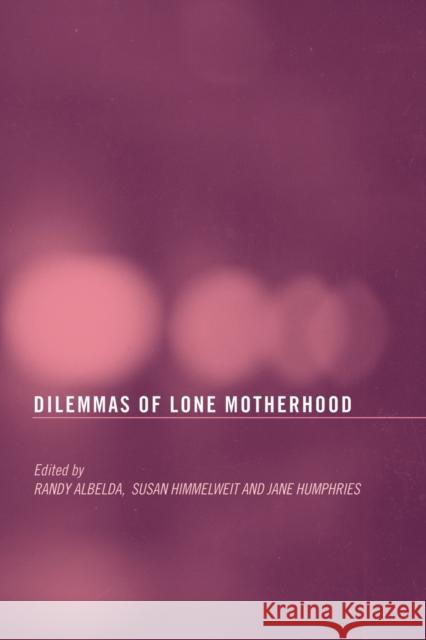The Dilemmas of Lone Motherhood: Essays from Feminist Economics » książka
The Dilemmas of Lone Motherhood: Essays from Feminist Economics
ISBN-13: 9780415360180 / Angielski / Miękka / 2005 / 288 str.
Women have entered the workforce in greater numbers worldwide. They are increasingly expected to earn wages, but are still primarily responsible for raising children. While all parents confront the tensions of this double burden, the situation is especially complex and acute for the lone mother, simply because she has no other adult who shares responsibilities, and no access to a male wage. Without strong family networks, decent part-time employment opportunities, extensive and high quality care for children of all ages, or government income support, lone mothers are much more likely to live in poverty and cannot compete with married parents for the resources they need to raise children.
The essays in this volume address these dilemmas and at the same time pay attention to important differences among lone mothers. How can governments help lone mothers without undermining their ability to enter the workforce? Should the state indefinitely support lone mothers? How should we measure the success of a policy? What roles do ethnicity, race, religion, class, and sexual orientation play? The authors in this volume speak from many perspectives and study a variety of places, including Sri Lanka, the US, Germany, England, and Norway, allowing the reader to draw powerful conclusions by comparing across different policies and contexts.
This book was previously published as a special issue of the journal "Feminist Economics."











